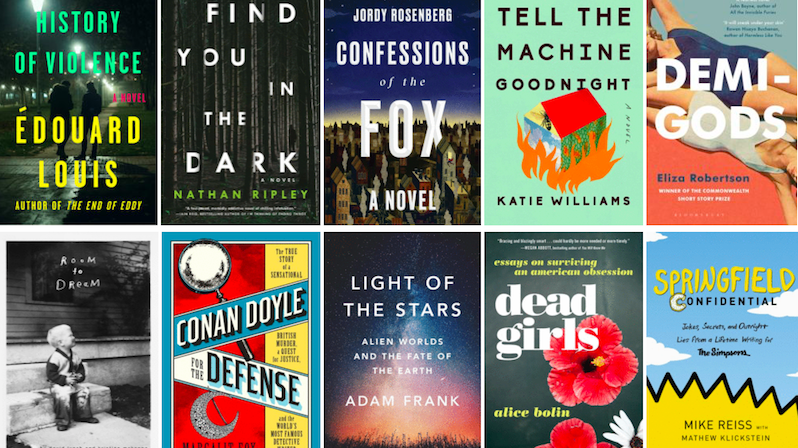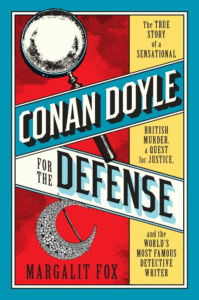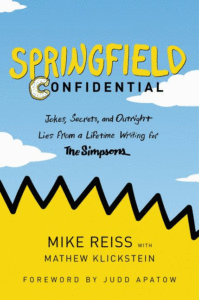
1. Confessions of the Fox by Jordy Rosenberg
(4 Rave, 3 Positive, 1 Mixed)
“Confessions of the Fox is a historical novel, but it’s also speculative fiction, metafiction and a political argument. And the figure at its heart, Jack Sheppard, is, in Rosenberg’s fictional world, a trans man…Rosenberg, who is trans himself, recalled that most publishers were far more eager to publish a possible memoir about his experience as a trans man than a speculative historical novel featuring a trans character … It’s a book that’s just as interested in its political messages as it is in its craft and narrative, and, unlike most books of this ilk, it’s compelling on each level.”
–Claire Fallon (The Huffington Post)
Read an except from Confessions of the Fox here
*
2. History of Violence by Édouard Louis
(2 Rave, 6 Positive)
“Louis’s greatest strength as a writer is that he feels things so passionately, sometimes to the point of obsession, but that he also has a philosophical turn of mind that explores, rather than neutralises, his feelings … The novel is superb at vividly recording the post-traumatic repercussions of rape. In spite of all his previous beliefs, Édouard becomes racist towards dark-skinned men. In this age of political correctness, it takes authorial courage to examine the irrational side of human reactions … Most people mythologise the past and turn traumas into fables. Only rarely does someone remember all the horrid little facts of a past aggression or indignity; Louis has just that sort of painful but necessary recall. He doesn’t correct his past thoughts to agree with the present ones. Why is this a novel rather than a memoir? The main character shares a name and all biographical details with the author. Perhaps a ‘novel’ is more representative and less eccentric than a memoir. Or, just as Louis felt the need to screen or distribute the painful narrative by giving parts of it to his sister, to tell part of it in the third person, so the artifice of fiction was necessary to tell this most woeful of stories.””
–Edmund White (The Guardian)
Read an excerpt from History of Violence here
*
3. Find You in the Dark by Nathan Ripley
(1 Rave, 7 Positive, 1 Mixed)
“We’ve seen countless chilling page-turners hit shelves, but few have captured the dark and twisted mind of a psychopath as well as Nathan Ripley’s debut novel Find You in the Dark … a well-crafted crime novel that proves utterly absorbing … A deeply disturbing read, with vivid scenes and complex psychology, Find You in the Darklingers long after the last page has been devoured … An addictive debut.”
–Tara Henley (The Toronto Star)
*
4. Tell the Machine Goodnight by Katie Williams
(2 Rave, 4 Positive)
“I loved Katie Williams’s debut novel Tell the Machine Goodnight. So much that I read it twice. The first time was straight through—not driven by plot or thrumming action, but in a languid drift across 280-some pages, a feeling like being drunk on a raft in calm water. The second time I dipped in and out, 10 or 20 pages at a swallow. I might read it again when we’re done here … The novel is almost a series of interlinked short stories … Taken separately, they are little short ditties about life in a future where unhappiness can be cured with a dog or clarinet lessons. Taken in small groups, they form movements. All together, they are a symphony.”
–Jason Sheehan (NPR)
Read an essay by Katie Williams here
*
5. Demi-Gods by Eliza Robertson
(1 Rave, 5 Positive, 1 Mixed)
“The novel’s sexual dynamics are certainly strange, but even at their most scatological, they’re soft. I wasn’t expecting so light a touch: like a kiss on the brow when you expected to be slapped. You’ll obsess over this kiss for a fortnight … It’s exciting to see boy-girl relations explored with such candor, with no room for easy answers, tidy endings, clear consent … Robertson conjures a languid world, a Didion-esque tumble-dry of summery whites. The book is of a piece with André Aciman’s Call Me by Your Name and other soft-core explorations of how we mess one another up, and realize it only later … I crave Robertson’s take on the objects and tensions of my own life. Rarely have blurred lines, in weird sex or otherwise, been explored with such grace.”
–Brittany Newell (The New York Times Book Review)
**
1. Room to Dream by David Lynch and Kristine McKenna
(8 Positive, 1 Mixed)
“What makes Room to Dream different from your average celebrity tell-all — aside from the idiosyncratic figure at its center — is the book’s form. It is composed as a diptych: one half biography, one half memoir … The book doesn’t give us one focused view of Lynch, but a double vision, as though two similar but not quite exact portraits of the man have been projected onto one another … the blending of biography and memoir into a kind of biographical duet turns the whole project on its head, makes it different, stranger, more alive … Sometimes these tales move the plot of his life forward, and sometimes they feel random, tangential, maybe even unnecessary … there is value, joy, and beauty in staying with Lynch and his cohorts for these 500-plus pages, no matter where they take you or how long they seem to stare into space making a decision.”
–Tyler Malone (The Los Angeles Times)
*

2. Conan Doyle for the Defense by Margalit Fox
(1 Rave, 5 Positive)
“One of the great successes of the book is the way it balances narrative drive with the wider social and criminological context … She also delves into Victorian and Edwardian criminology, noting how police did not then seek clues in the crime scene, as they might do today, so much as read them ‘directly off the criminal’ — off his character, his morals, even the shape of his head … This is a first-class book: pacy, insightful and lucid. And although it is never done heavy-handedly, it reveals some of the disturbing ways in which the Edwardian era echoes in our own.”
–James McConnachie (The Times [UK])
Read an essay by Margalit Fox here
*
3. Light of the Stars by Adam Frank
(6 Positive)
“[an] intriguing new book … it’s in the last portion of this book that it really shines … Specifically, he asks whether all civilizations on all planets inevitably have to deal with some form of climate change … The scientific speculation that follows is intellectually bracing and well-founded—and ultimately works because Frank is really looking for a new way to contextualize climate change here on Earth … Frank’s book isn’t the one story about climate change—but it’s a good story, and a valuable perspective on the most important problem of our time.”
–Adam Becker (NPR)
*
4. Dead Girls by Alice Bolin
(2 Rave, 2 Positive, 1 Mixed)
“Informed by the literature of Raymond Chandler, Joan Didion and others, as well as films, television shows and other pop culture ephemera, Bolin branches out, exploring toxic masculinity, myths of femininity and the American West, where … Bolin does not hesitate to inspect her own stigmas and beliefs—she’s watched her fair share of Dateline. Her dryly humorous, deeply researched collection is a thoughtful critique of American culture and its disparate and disturbing fixations and fears.”
–Lily McLemore (BookPage)
*

5. Springfield Confidential by Mike Reiss with Mathew Klickstein
(3 Rave, 2 Mixed)
“Mike Reiss pulls back the curtain in his new book, cheekily titled Springfield Confidential. Cheeky, because as a behind-the-scenes peek at a long-running Hollywood production, this is no kiss-and-tell tome. Even at its most dishy, it is closer to a sketch-and-kvetch. Yet don’t let that dissuade you, because Springfield Confidential—a title that nods, of course, to the Simpsons’ unmappable home town—offers a wealth of great anecdotes, all peppered with punchlines that make Reiss’s memoir as hilarious as whichever season of The Simpsons you recall most fondly.”
–Michael Canva (The Washington Post)

